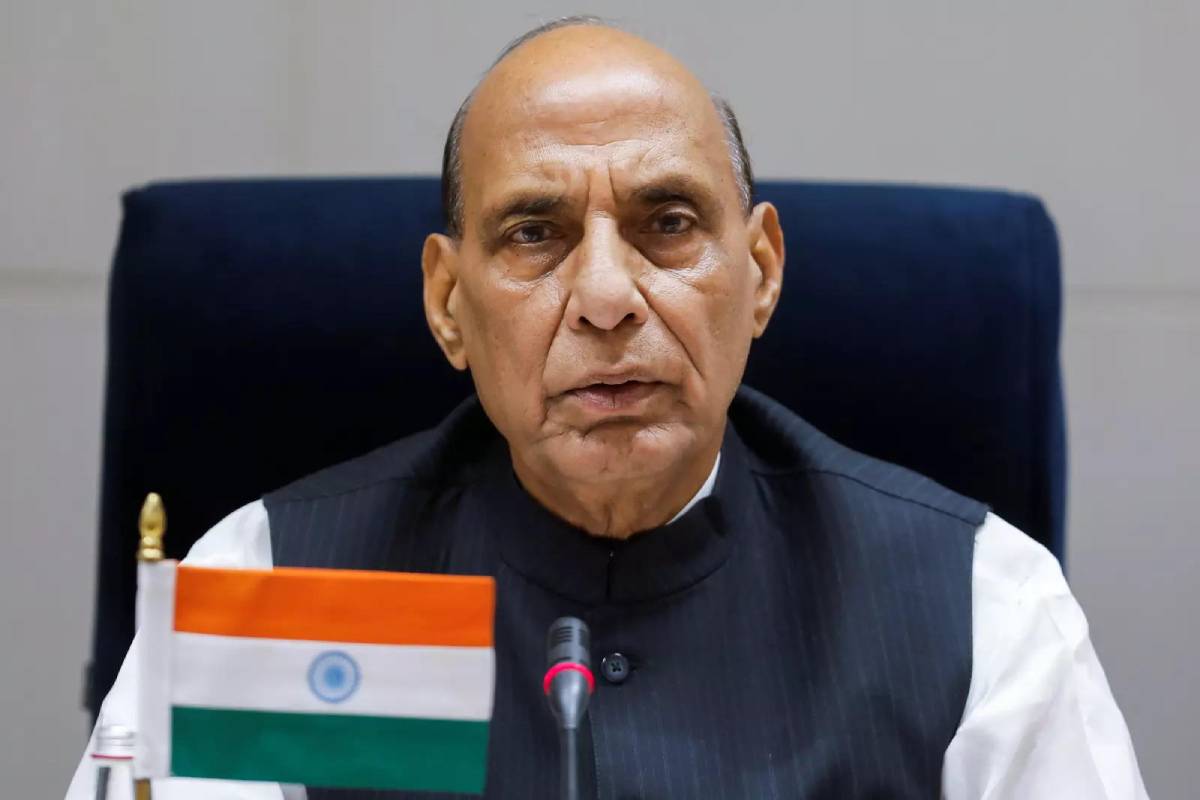Within the next five years, India will be the third largest economy of the world, said Union defence minister Rajnath Singh at the convocation ceremony of Visva-Bharati University (VBU) today.
“And even that day is not far away when India will become the top economy of the world,” he said.
He added, “Today, we are progressing continuously as the 5th largest economy in the world. According to a recent report of the investment firm Morgan Stanley, India will become the third-largest econ- omy in the next 4-5 years. I am hopeful that we will become the world’s top economy by 2047.”
West Bengal needs a reawakening at the moment and India is looking for its con- tributions once again in the fields of knowledge, science and philosophy, Rajnath Singh said.
The chief guest of the convocation ceremony while delivering his speech said that Bengal has two centres of pilgrimage, Ganga Sagar and Visva-Bharati.
He called upon the youth to innovate, develop the latest technologies and set up new companies, research establishments and start-ups to provide a new acceleration to the government’s efforts towards making India a more powerful and self-reliant nation.
Rajnath encouraged them to take inspiration from Gurudev Rabindranath Tagore and move forward with vision and knowledge on one hand and centuries-old Indian tra- ditions and values on the other while striving to achieve the overall objective of taking the nation up the development ladder.
Elaborating on Gurudev Rabindranath Tagore’s idea of nationalism and universal humanism, Rajnath enlight- ened the students on how the great philosopher deeply influenced Indian society and politics with his thoughts, philosophy and values.
He emphasised that for centuries, Indian nationalism has been based on the feeling of cooperation and human welfare. “Indian nationalism is cultural, not territorial. Consciousness comes before territory. Human welfare is the focus. Indian nationalism is all-inclusive rather than exclu- sivist and is inspired by universal welfare. Visva-Bharati is an indicator of this sentiment,” he said.
Rajnath added that the great philosopher’s education-related thoughts work as a guiding light even today.
“Gurudev believed that education is the way to reach truth and beauty and ensure social welfare. He believed that it is not enough just to learn, but it is necessary to use it in the interest of soci- ety. One teacher educating 40- 50 students together, which is a West-inspired practice, will be unable to enhance the individuality of any child. In India, there was no such sys- tem in the ancient Gurukul. Many studies show that in universities like Nalanda and Takshashila, the ratio of faculty and students used to be 1:5. The government rolled out the National Education Policy 2020, which pays full attention to the personality development of children and proper teacher- pupil ratio,” he said.












